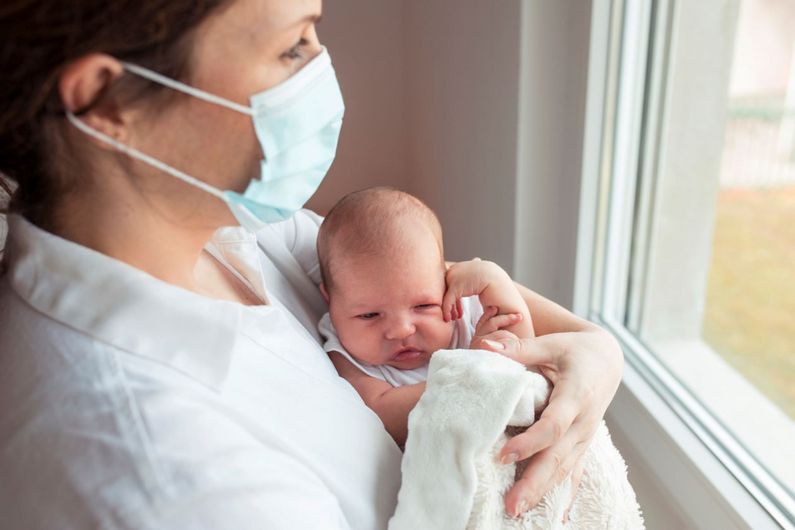Infants little affected by COVID-19
- Salle de presse
12/16/2020
- UdeMNouvelles
A CHU Sainte-Justine study of clinical characteristics and disease severity in infants with COVID-19 shows that those who've contracted the SARS-CoV-2 virus have done surprisingly well.
COVID-19 is a very different disease in infants; compared to adults, most do surprisingly well when infected with the SARS-CoV-2 virus, which causes the disease.
Indeed, a new CHU Sainte-Justine study of Montreal infants infected during the first wave on the pandemic, between Valentine’s Day and the end of May, shows that most recovered quickly and had only very mild symptoms.
Led by Dr. Fatima Kakkar, an associate medical professor at Université de Montréal), the study of clinical characteristics and disease severity among infants was published Monday online in JAMA Network Open.
A higher rate of hospitalizations
Both in Quebec and across Canada, infants have had a higher rate of hospitalizations from COVID-19 as compared to other pediatric age groups. In the new study, out of 1,165 infants tested, 25 (2 per cent) tested positive for SARS-CoV-2, and of these, just under one-third required hospitalization.
However, these hospitalizations were of short duration (on average, two days), and more often reflected routine clinical practice whereby all newborns with fever are admitted for observation, an infectious workup, and administration of antibiotics pending results.
In 19 per cent of cases, other infections such as those of the urinary tract were found to explain the cause of the infant’s fever. Most importantly, in 89 per cent of cases, infection was mild, and none of the infants required oxygen or mechanical ventilation.
Effects little known
During the first wave of the pandemic, little was known about the effects of acute SARS-CoV-2 infection in infants and newborns. Data was limited to a few case reports from the original outbreak in Wuhan, China, showing high rates of hospitalization and severity of illness.
This was consistent with other common infectious diseases: newborns and infants are generally at much higher risk of severe disease, such as influenza and respiratory syncytial virus. The researchers therefore anticipated the same severe outcomes in newborns infected with SARS-CoV-2.
Reassurance for parents
Their findings should reassure parents and caregivers about the outcome of COVID-19 infection in infants, Kakar said. “We have yet to understand how infants are protected from severe disease.”
Other studies are now underway at the Montreal pediatric hospital research centre to understand the differences in the immunological response to SARS-CoV-2 in infants compared to their parents.
About this study
“Clinical characteristics and disease severity among infants with SARS-CoV-2 infection in Montreal, Canada,” by Fatima Kakkar et al, was published Dec. 14, 2020 in JAMA Network Open. Funding was provided by the Reseau SIDA-Maladies infectieuses of the Fonds de recherche du Québec - Santé.
About the CHU Sainte-Justine Research Centre
CHU Sainte-Justine Research Centre is a leading mother-child research institution affiliated with Université de Montréal. It brings together more than 200 research investigators, including over 90 clinicians, as well as 350 graduate and post-graduate students focused on finding innovative means of prevention, faster and less invasive treatments, and personalized approaches to medicine. The Centre is part of CHU Sainte-Justine, which is the largest mother-child hospital in Canada and second most important pediatric hospital in North America.













